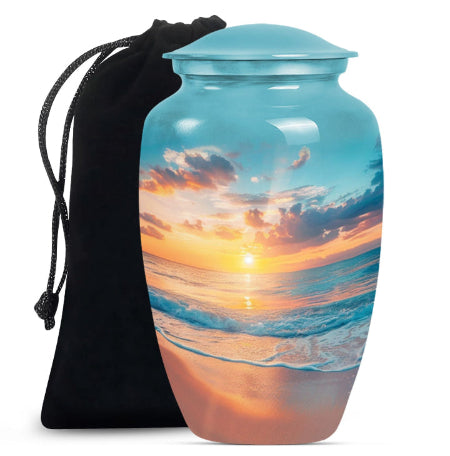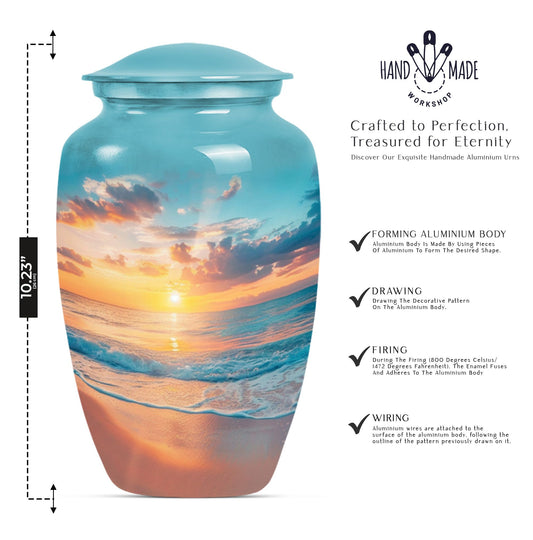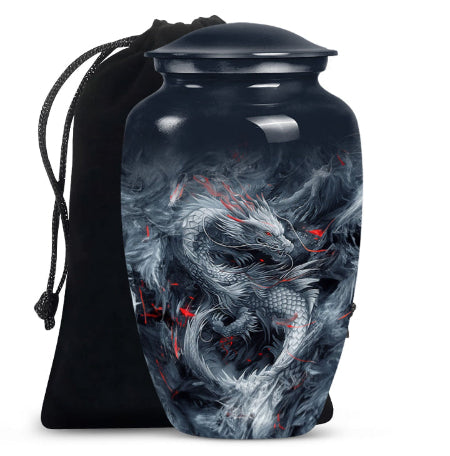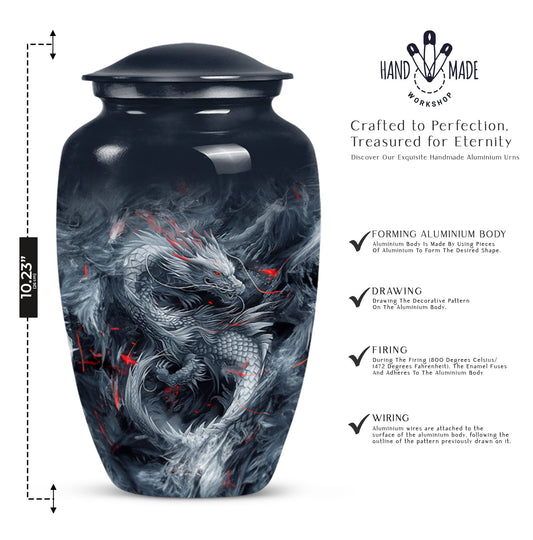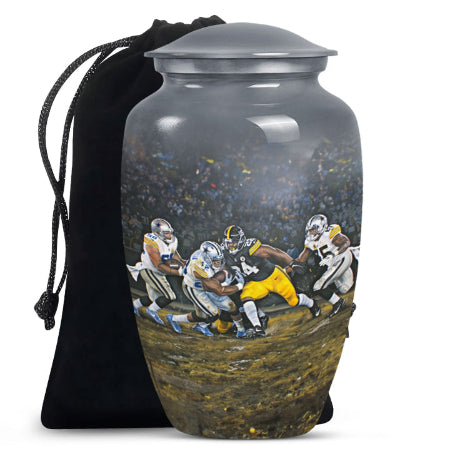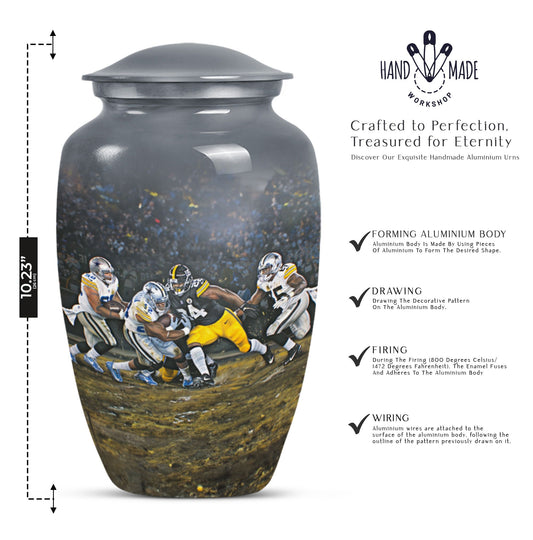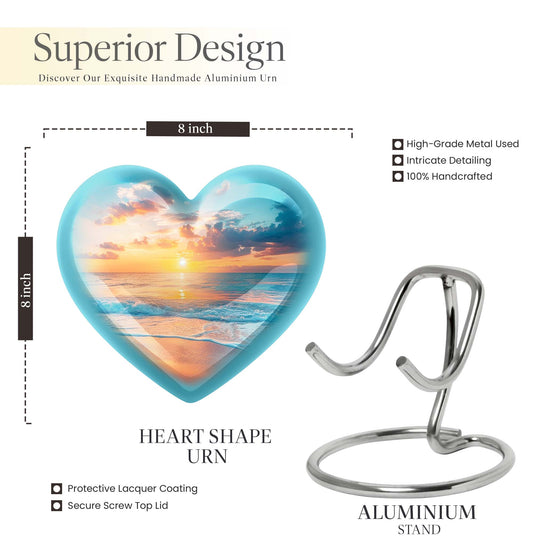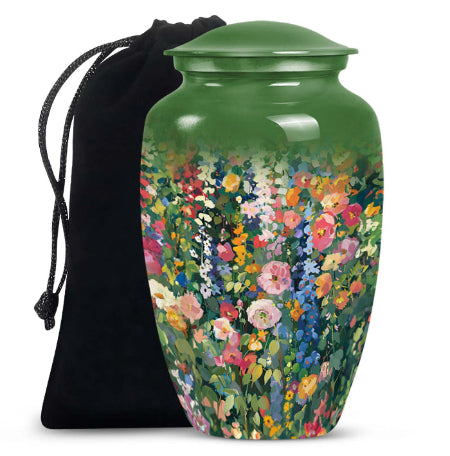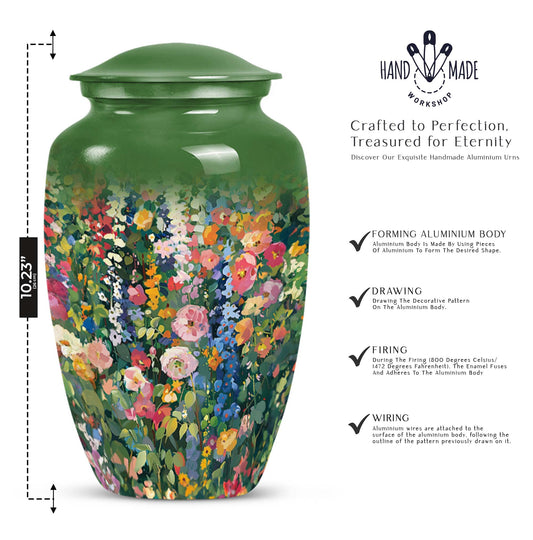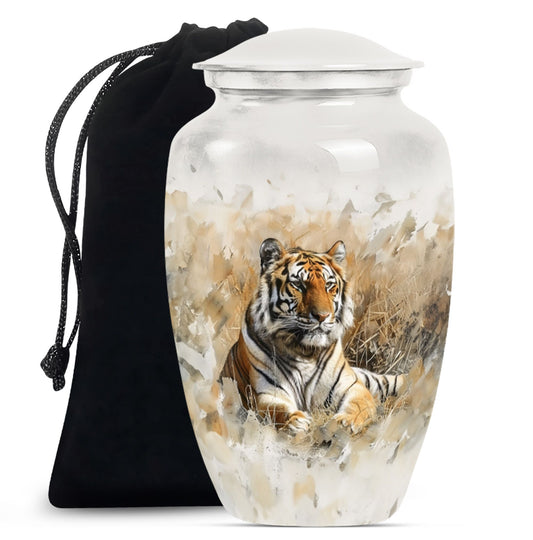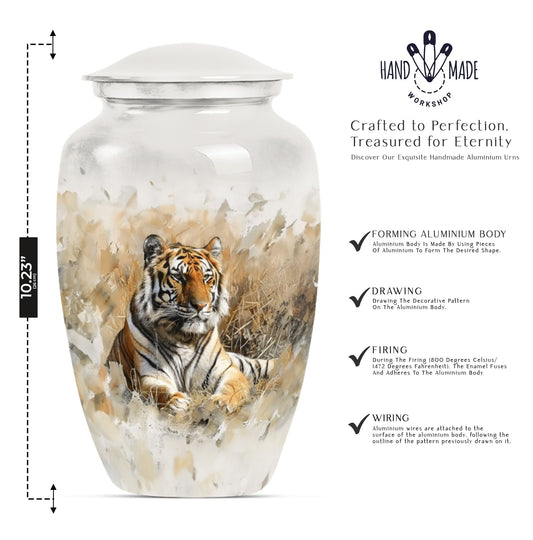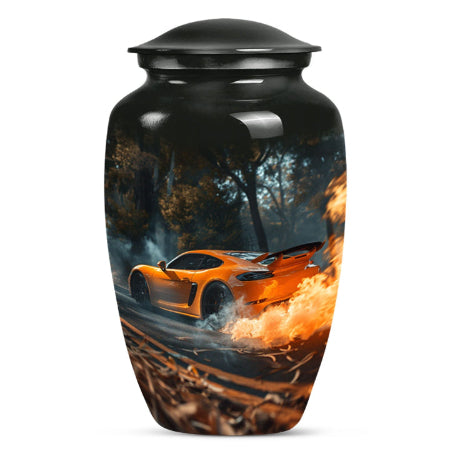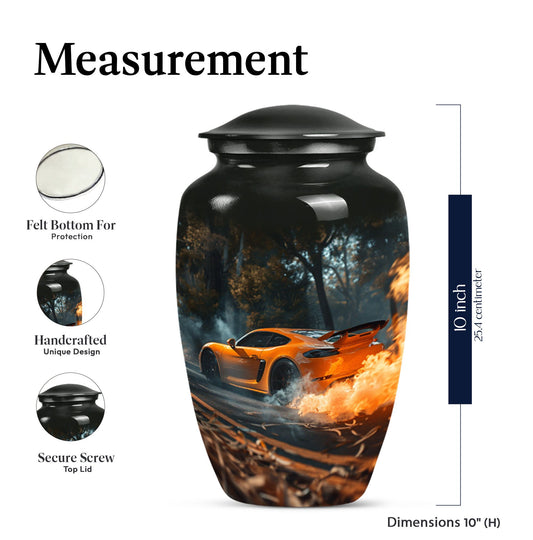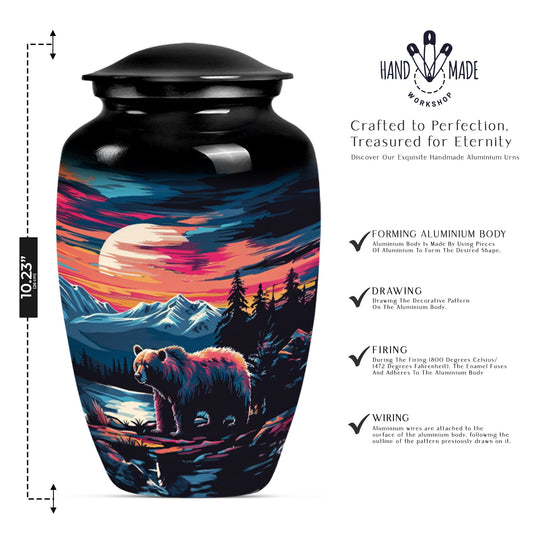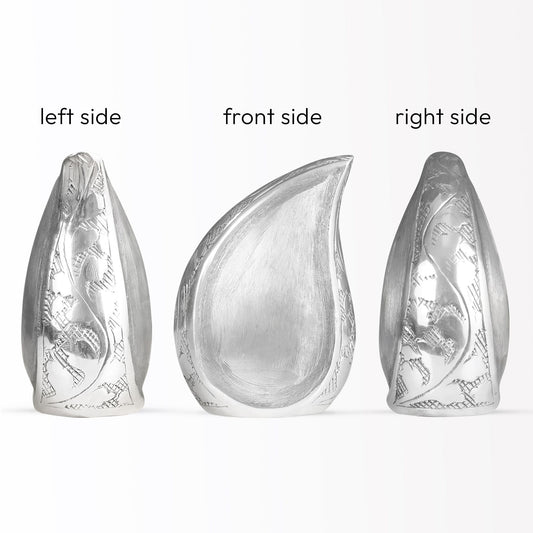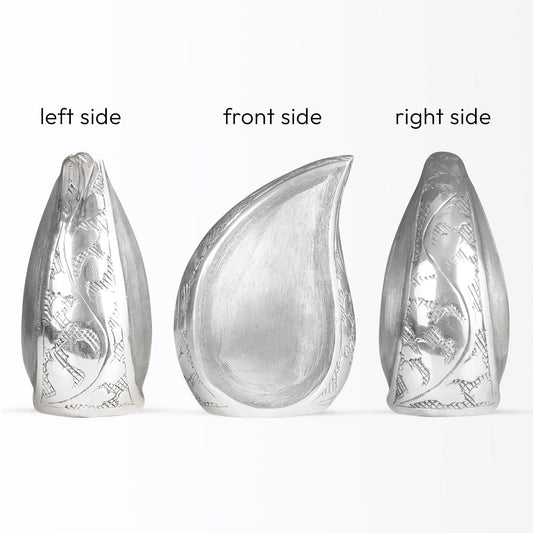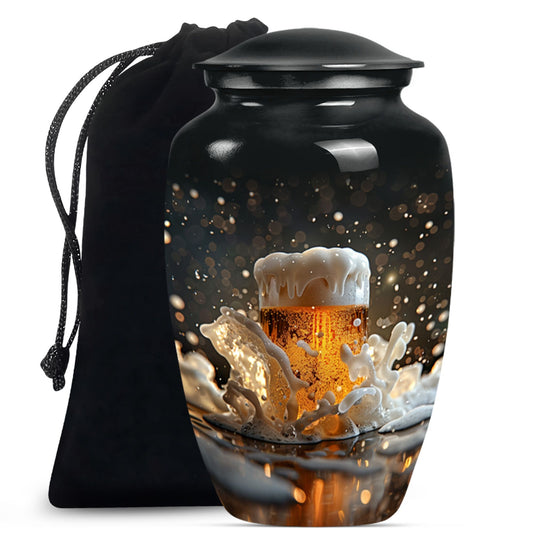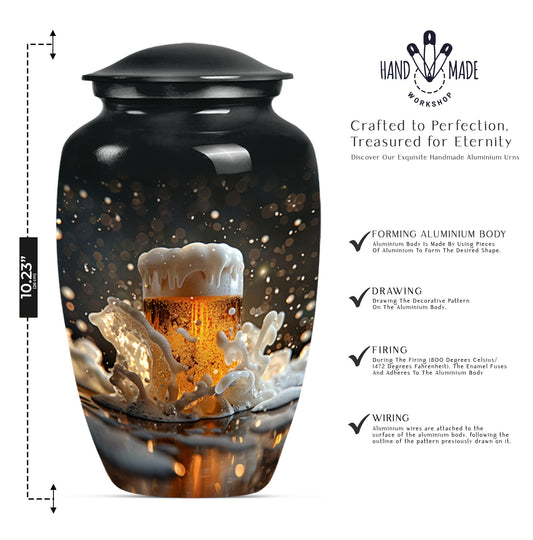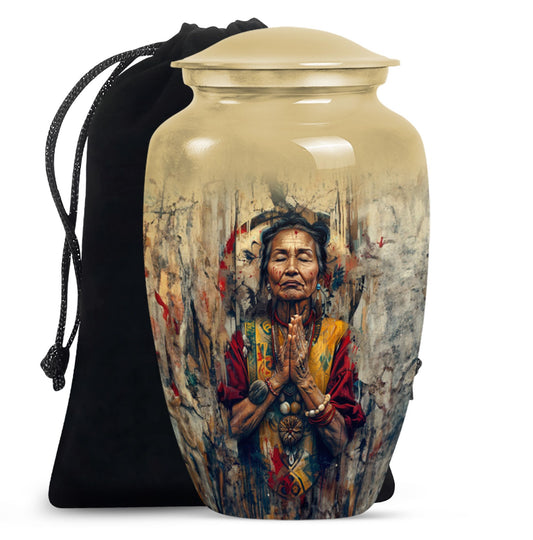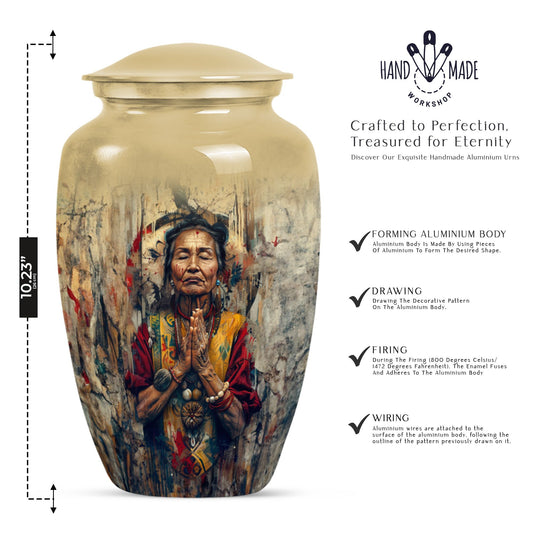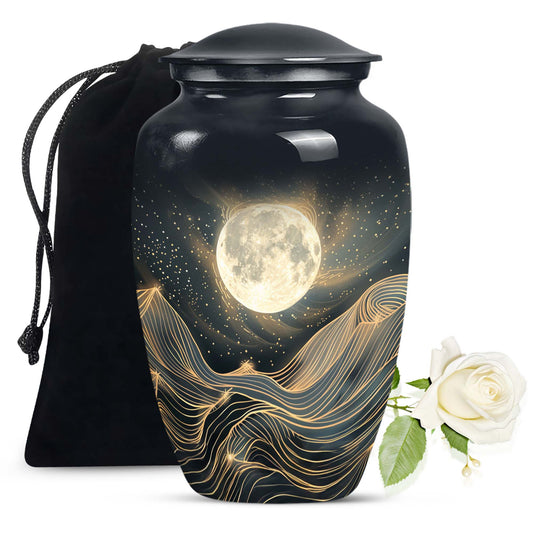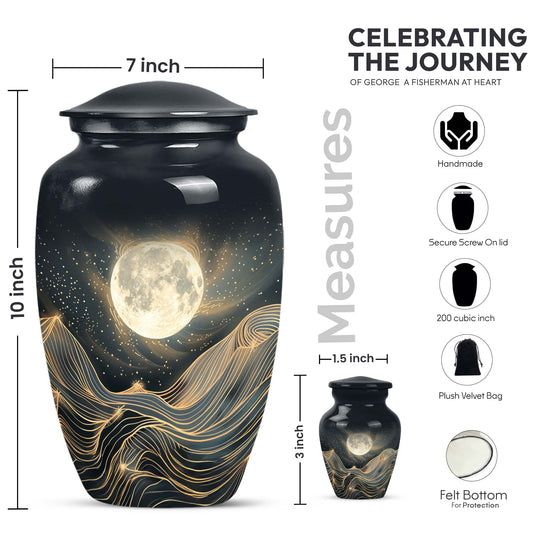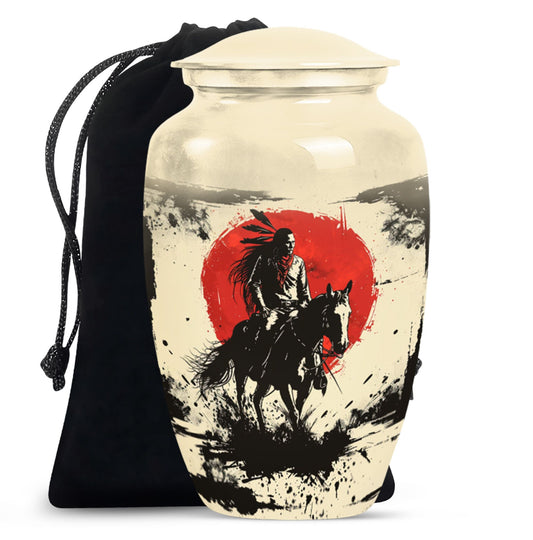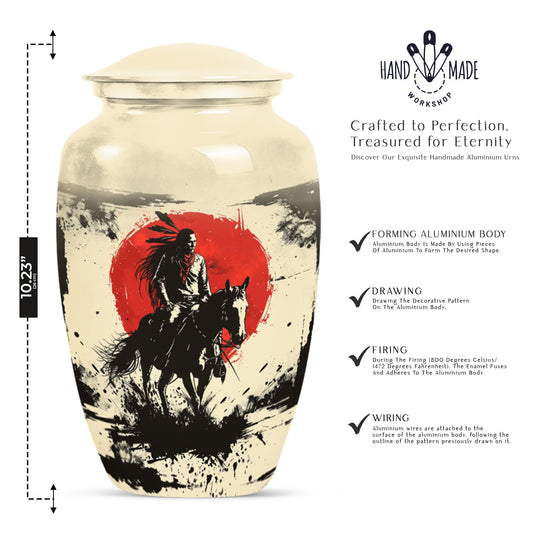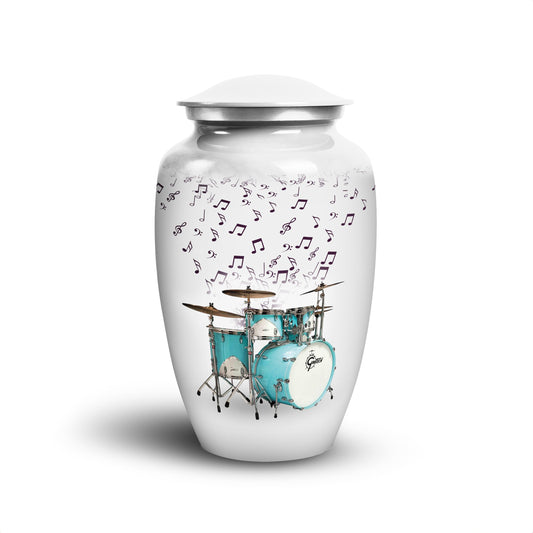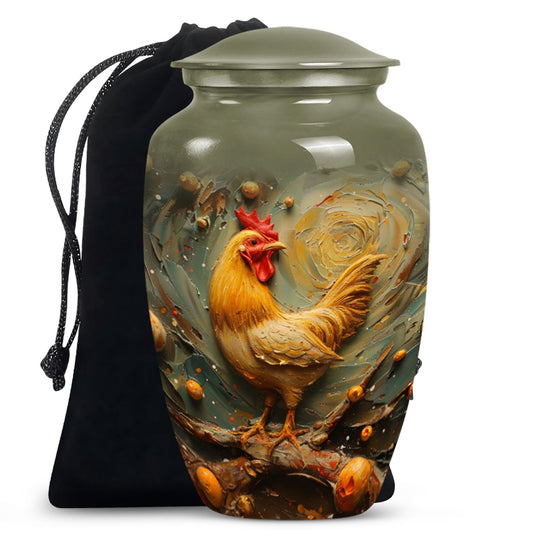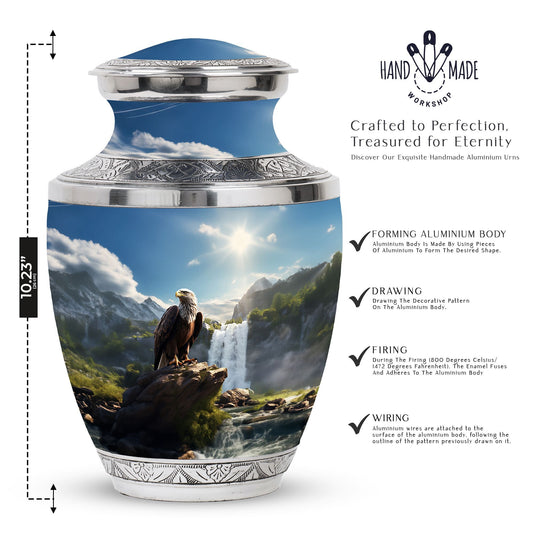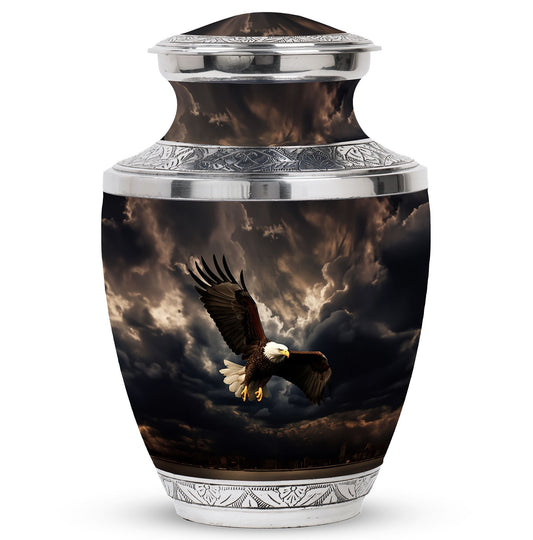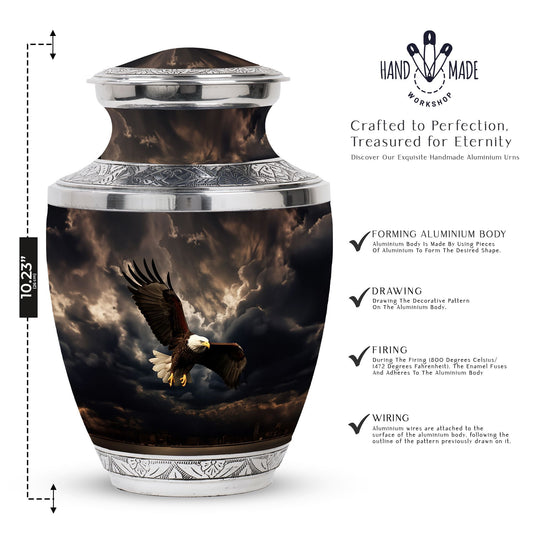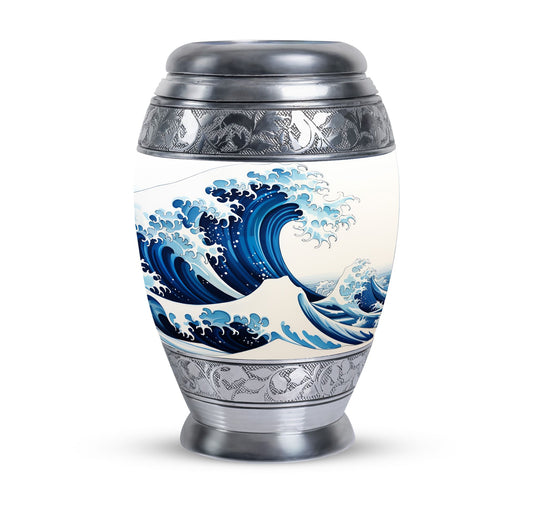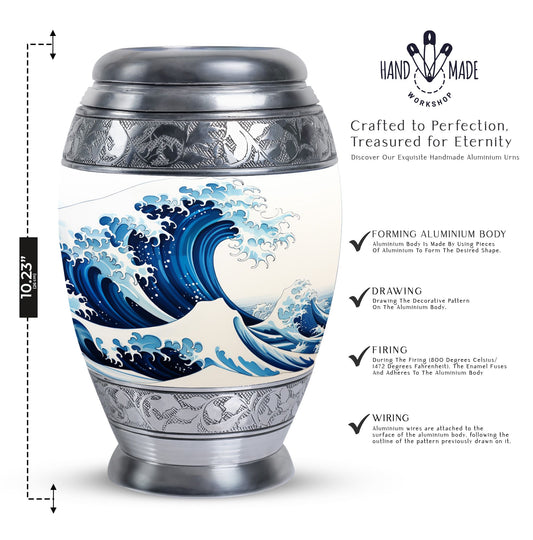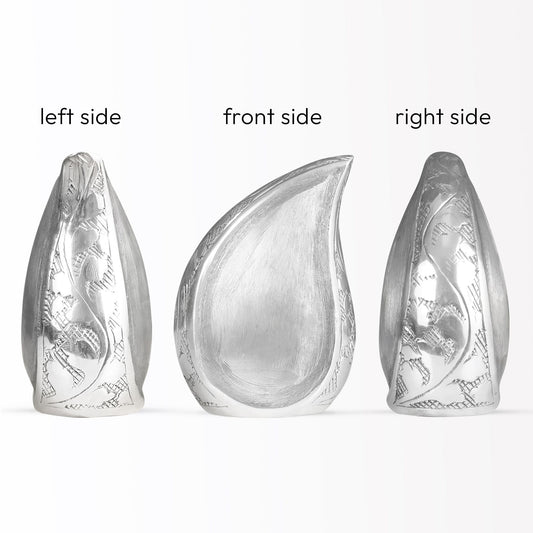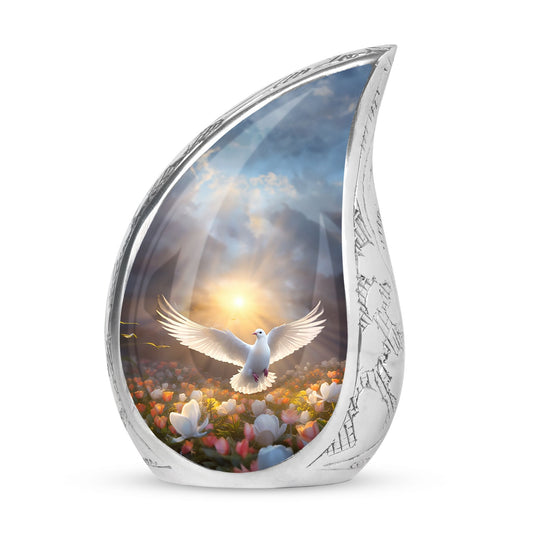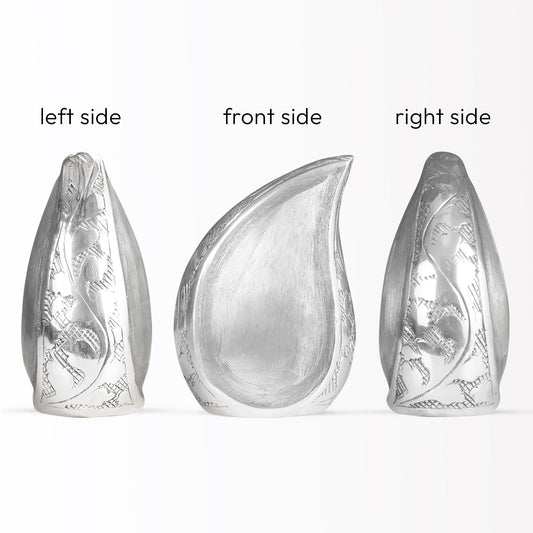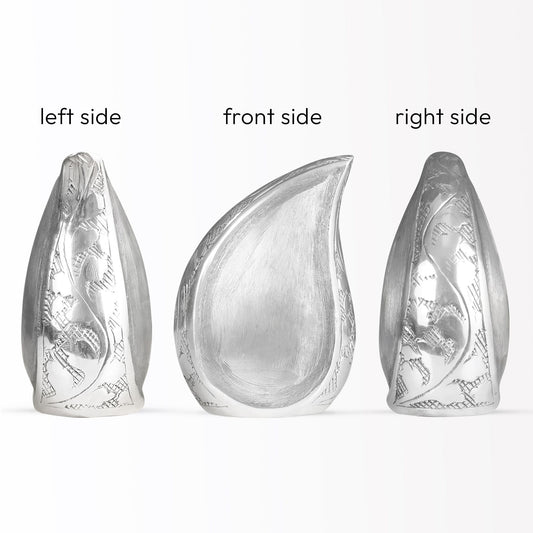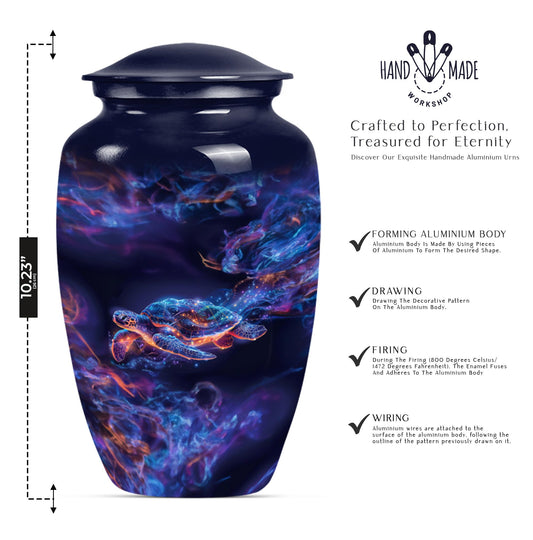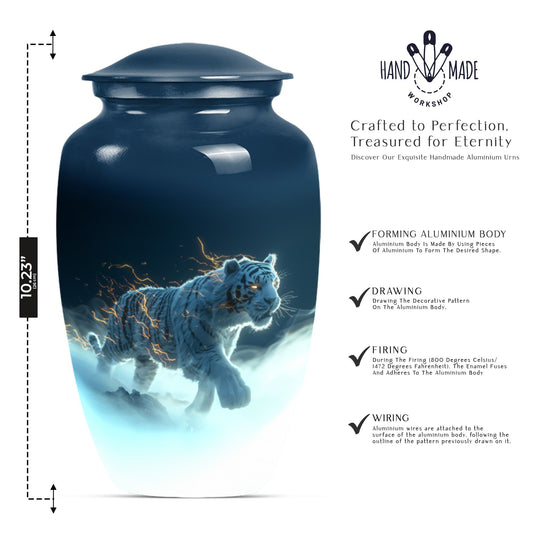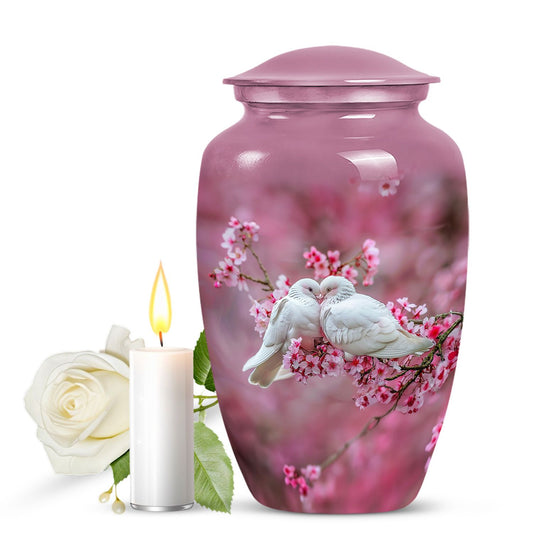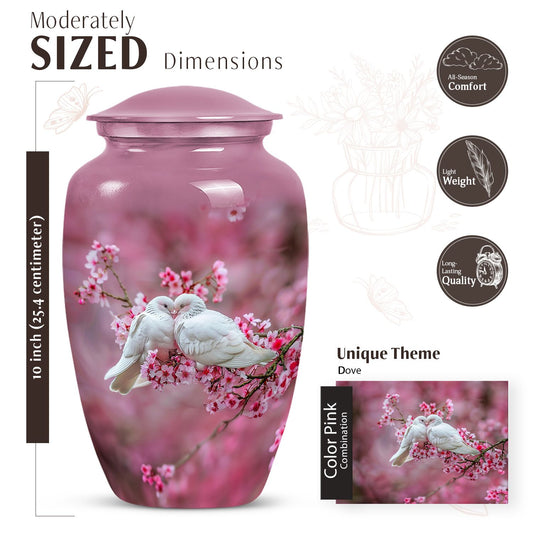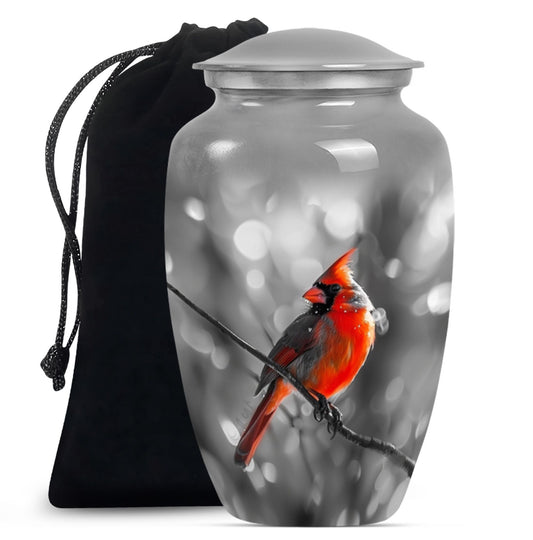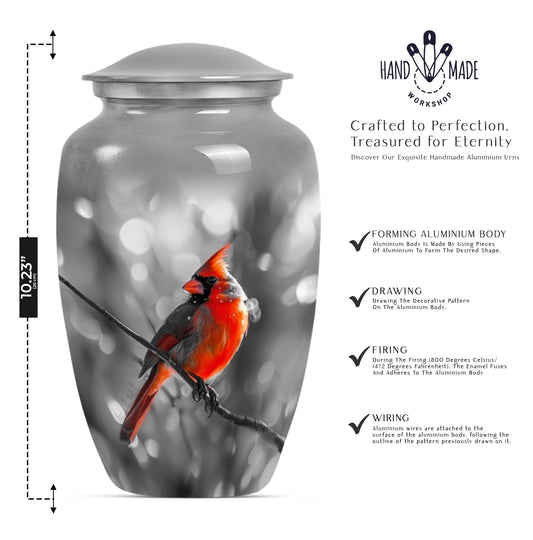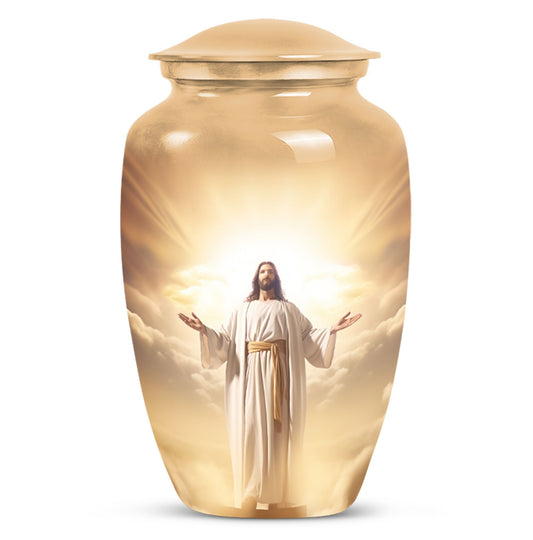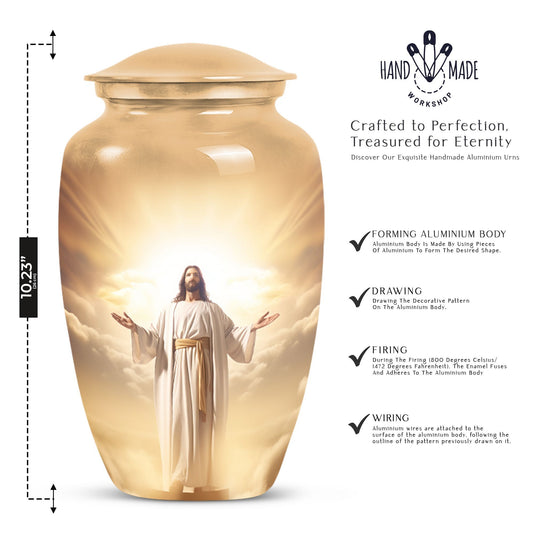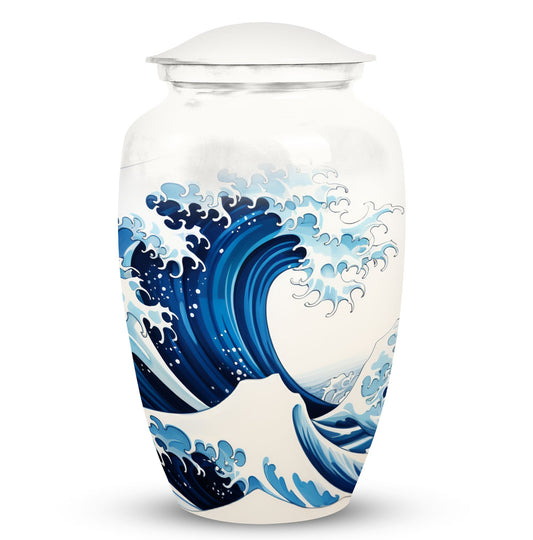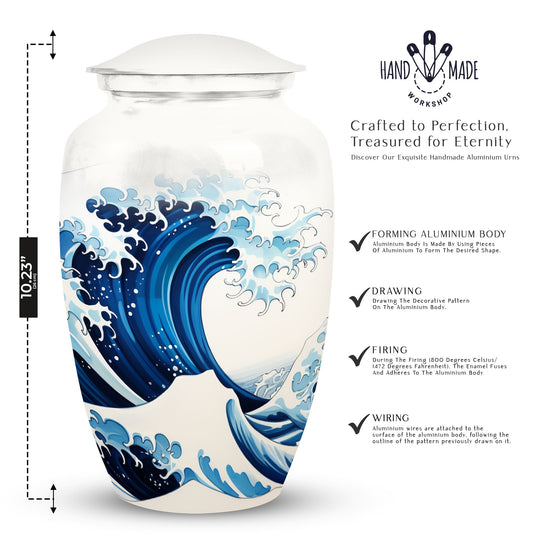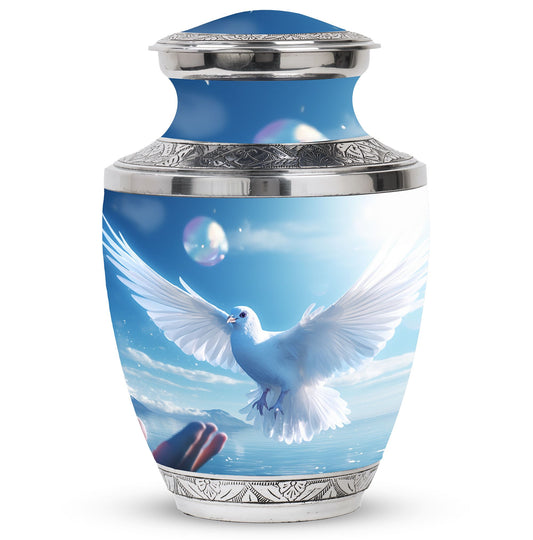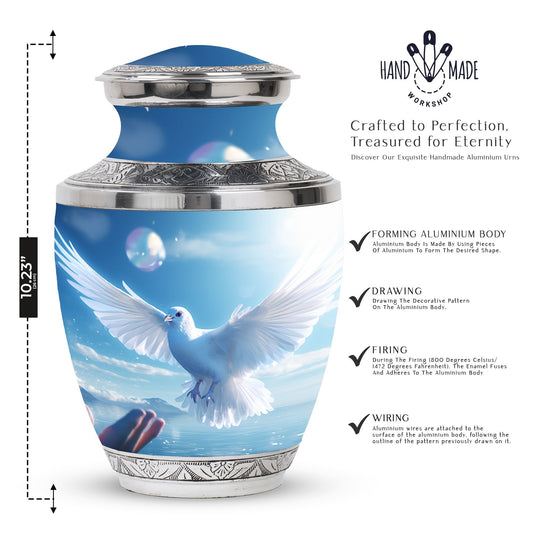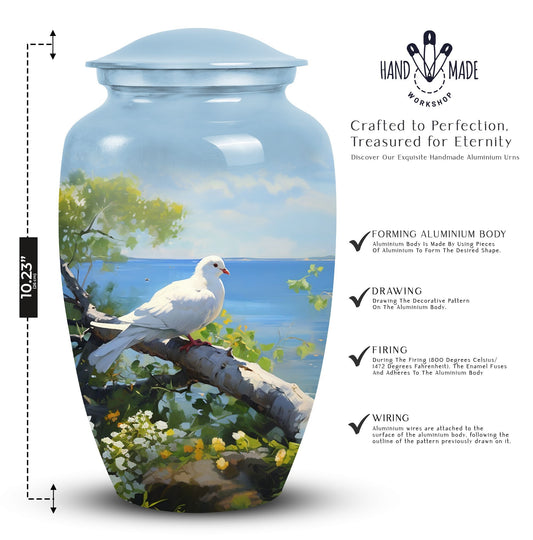Popular Urns
How To Honor A Deceased Veteran?
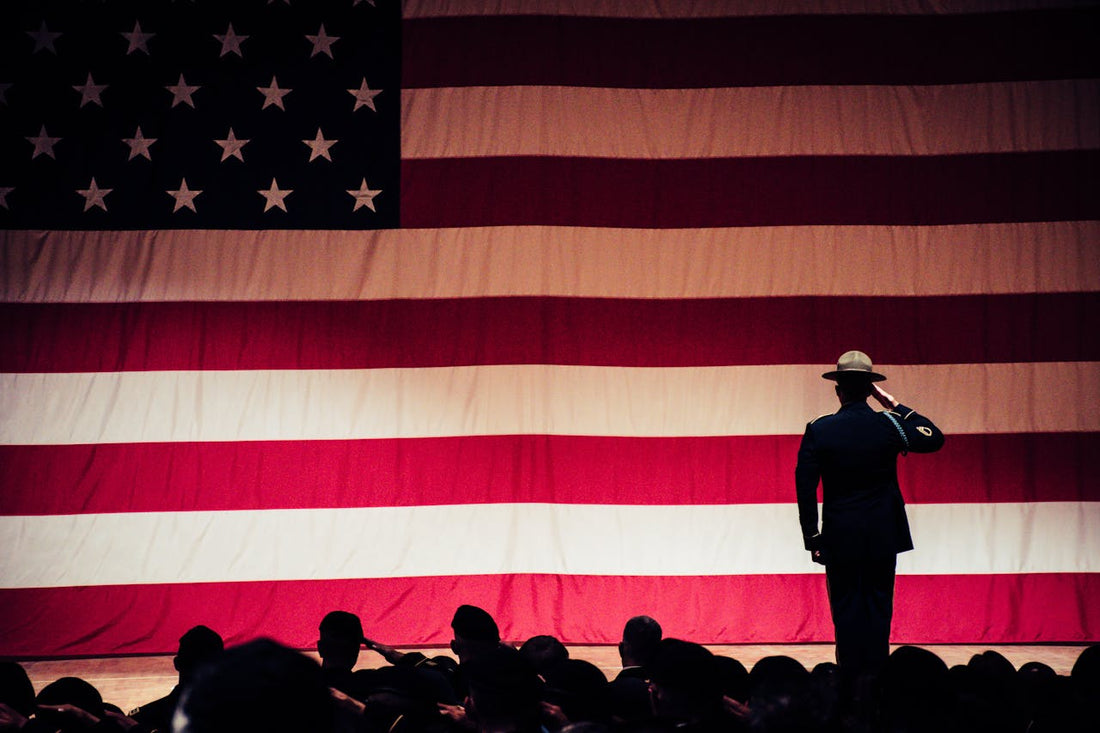
The manner of paying respect to a dead veteran would be to interlace traditional funeral procedures with military honors, especially if there are ceremonies in recognition of that service. Here are six ways honoring a veteran, each explained with who typically would attend to the funeral if a veteran were to die
1: Military Honors Ceremony
Military funeral honors, which include the ceremonial folding and presentation of the flag and Taps, are offered through the U.S. Department of Defense. Military honors can be coordinated through a funeral director to acquire an honor guard if the family wants one to be part of the ceremony. This is an honor offered to eligible veterans as a tribute for their service.
2. Flag for the Burial Ceremony :
Present the flag for burials to be placed over the casket or over the urn of a deceased veteran as a sign of respect to him. The flag is then ceremoniously folded and handed over to the family. The presentation of the flag is a significant ceremony, mostly performed on behalf of the veteran's service. In most families, the flag is preserved in a memorial case as a keepsake.

3. Headstone or Marker
Veterans are eligible for a headstone or marker at government expense. Families may purchase these markers through the Department of Veterans Affairs. The markers vary in design to ensure that they can be of the branch of service and religious symbols of the veteran. It will be a permanent reminder of their service for those interred in private cemeteries.
4. Veteran-Specific Burial or Cremation:
Many veterans wish to be interred in a national or state veterans' cemetery, where the natural beauty of the setting is preserved as a fitting tribute to those who served. Veterans also may choose to be cremated and have their ashes interred in such cemeteries, often at no expense to the family. It brings the person into union with others who served, as a place of dignity and honor is found.

5. Memory Wall or Memorial Display:
No better tribute can be given to a veteran than having an exhibit at the funeral that reflects on the veteran's military accomplishments and personal life. Family members may include medals, uniforms, photographs, along with other personal mementos. Many families also produce a digital slideshow or memorial website in which others may contribute their memories and pay their respects.
6. Gift to a Charity for Veterans
For others, a charitable gift in the veteran's name is the way to honor. Gifts could be given to help fellow veterans, through agencies like the Wounded Warrior Project, Disabled American Veterans (DAV), and other similar groups. These gifts, aside from being an enduring tribute to the veteran, give as well to fellow veterans, their families, and loved ones.

Ques: Who Will Plan the Funeral?
Traditionally, it is the family that plans a veteran's funeral, though they often use the services of a funeral director. Most funeral homes are aware of the VA and can walk families through the process of planning military honors.
Burial Benefits:
The VA does not pay for all funeral expenses but does offer burial benefits. These include:
A burial flag Headstone or marker, either flat or upright Allowance to help defray burial costs. National and state veterans' cemeteries also offer interment free to veterans and their spouses which leaves this part of the financial burden away from the family, and he or she gets to rest in dignity.
ALSO READ:
What All To Do When Someone Dies?
Creative & Unique Cremation Urn Ideas


